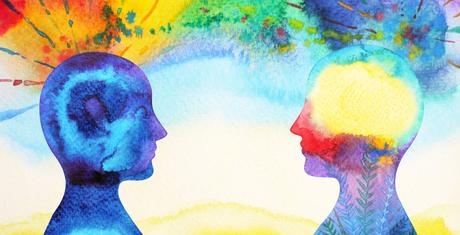1. Get comfortable in your own skin
You may have discovered how difficult it is to be isolated, on your own. The truth is, you aren’t good company for others unless you are comfortable in your own skin. So instead of looking for distractions on social media feeds or incessantly gaming, learn to spend time alone finding ways to get to know yourself better. Says one authority: “For many, alone time is a great opportunity for self-reflection and self-discovery. It can also rejuvenate you by balancing your emotions and letting your body physically relax.”2. Practise meditation

3. Become mindful
An intense focus on the present moment is the hallmark of many types of meditation. But mindfulness can also be realized through other practices, such as yoga, tai chi and qigong. The American Psychological Association points out that increased mindfulness can reduce stress, improve focus and memory, provide insight, and make our relationships better. Mindfulness activities “focus on training attention and awareness in order to bring mental processes under greater voluntary control and thereby foster general mental well-being and development and/or specific capacities such as calmness, clarity and concentration.”
4. Use art as therapy

5. Connect with nature
Writers such as Henry David Thoreau celebrate the spiritual renewal promoted by immersing ourselves in nature. Today, as more of us deal with the pressures of urban life, it is even more important to connect with nature, whether that means a long walk in a city park or putting a kayak on your car roof and searching for remote rivers to paddle. Writes the University of Minnesota: “Being in nature, or even viewing scenes of nature, reduces anger, fear, and stress and increases pleasant feelings. Exposure to nature not only makes you feel better emotionally, it contributes to your physical well-being, reducing blood pressure, heart rate, muscle tension, and the production of stress hormones.”
6. Connect with nature

7. Think of others
When we become burdened with the problems in our own lives, we tend to get locked up in our own heads. One way to free ourselves is to think about others. You might have friends who are going through a hard time themselves. Call them up or take them out, and really listen to what they have to say. They will be grateful that you care and, along the way, you can improve your own mood, reduce your stress levels, increase your sense of well-being, and be better prepared to deal with the challenges in your own life.8. Cultivate gratitude
We are often surrounded by loss, whether it is our own deteriorating health, deaths of family members or friends, loss of prosperity, and the list goes on. Yet some people can retain a sense of optimism under the most dire circumstances, while others will be thrown into a tailspin by the smallest little thing going wrong. To tip the scales in your favour, it helps to cultivate a practice of gratitude, reminding yourself of what is right in your life today. Psychology research shows that “gratitude is strongly and consistently associated with greater happiness. Gratitude helps people feel more positive emotions, relish good experiences, improve their health, deal with adversity, and build strong relationships.”9. Play an instrument

